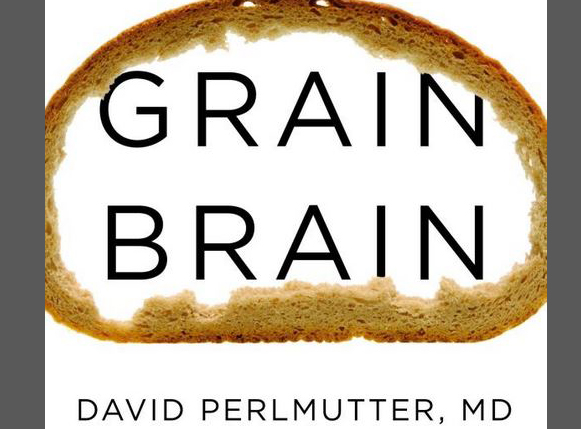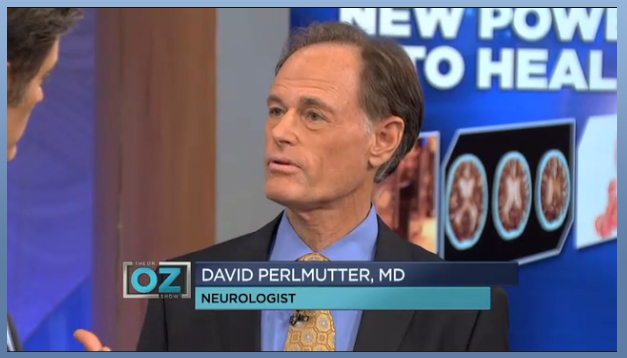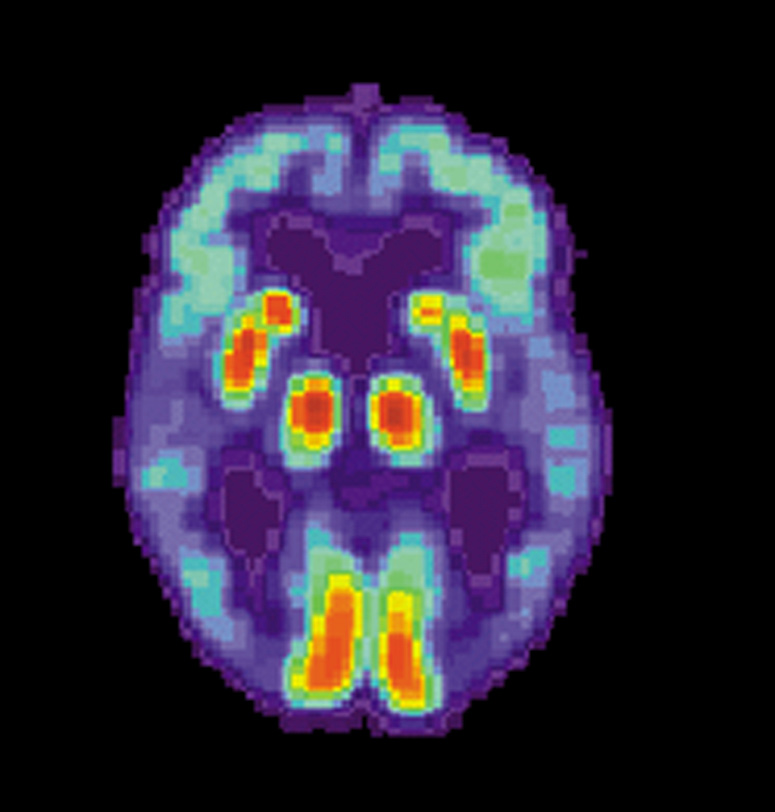Medscape interviews neurologist and author, David Perlmutter, MD about his new book Grain Brain: The Truth about Grains, Carbs, and Sugar–Your Brain’s Silent Killers and discusses ketogenic diets, brain toxicity caused by certain protein found in wheat, and how to cure the root causes of brain atrophy through dietary and lifestyle intervention. Join Susie T. Gibbs of Fast Days Healing Days as she gives you an overview of the interview.

Grain Brain by Dr. David Perlmutter
David Perlmutter, MD, neurologist and board certified fellow of the American College of Nutrition, is the author of Grain Brain: The Truth About Grains, Carbs, and Dementia—Your Brain’s Silent Killers. Medscape interviewed Dr. Perlmutter this week in an article entitled, Dementia: Is Gluten the Culprit?—which may be found by clicking the link. You have to register to read the full article, but registration is free and the article is well-worth the time.
 The Interview discusses the premise of his new book, Grain Brain, and brought up key questions about brain health and Dr. Perlmutter’s version of the ketogenic diet. Perlmutter’s ketogenic diet focuses on very low carbohydrate, abundant healthy fats (extra virgin olive oil, olives, avocado, nuts and seeds), adequate protein and good amounts of low glycemic, leafy veggies and colorful veggies.
The Interview discusses the premise of his new book, Grain Brain, and brought up key questions about brain health and Dr. Perlmutter’s version of the ketogenic diet. Perlmutter’s ketogenic diet focuses on very low carbohydrate, abundant healthy fats (extra virgin olive oil, olives, avocado, nuts and seeds), adequate protein and good amounts of low glycemic, leafy veggies and colorful veggies.

Dr. Perlmutter appeared on television with Dr. Mehmet Oz
In his version of the low carb diet, meat is an “apostrophe” or “side dish” and not the star. Grass-fed beef and wild-caught fish provide the main protein sources in small quantities, while abundant fats and leafy greens help nourish the body and especially the brain, while simultaneously lowering blood sugar, insulin and inflammation. The article discusses the links or associations being seen between high blood sugar and brain atrophy and dementia, especially in the hippocampus region. So Perlmutter proposes that his ketogenic diet is a means to actually cure diseases of the brain instead of merely treating symptoms of neurologic disorders.

PET scan of a brain showing Alzheimer’s Disease. Photo courtesy of US National Institute on Aging – Alzheimer’s Disease Education and Referral Center
Ketogenic diets are linked with either slowing the progression of brain atrophy and in some cases, show signs of neuro-regeneration of the hippocampus (aka new brain cells and brain growth). But Perlmutter addresses more than the ketogenic diet/blood sugar/brain health relationship. He also answers Medscape’s questions regarding grains and the neuro-toxic effects some of the proteins, found in grains, have on brain health and function. The effects may occur in all humans, not just the gluten-sensitive and celiac population.
Dr. Perlmutter goes on to emphasize that lifestyle is as important to brain health as diet. Normalizing Vitamin D levels and getting proper physical activity—especially weight-bearing exercises, also contribute to slowing down the progression of dementia and neuro-degeneration.
As a side-note, alternate day intermittent fasting is also being tested as a type of dietary intervention for brain atrophy. CR (calorie restriction) is associated with a slower rate of brain atrophy or dementia and is also seen to stimulate new brain growth, as reported in many publications such as the New York Daily News and Bloomberg.
Copyright © 2014 Fast Days Healing Days. All rights reserved.



Recent Comments